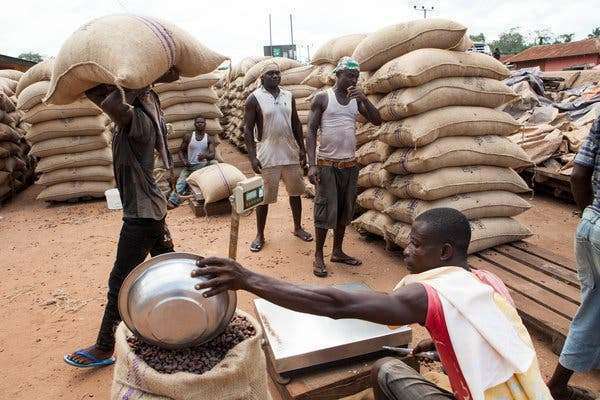The Ghana Cocoa Board (COCOBOD) has embarked on an ambitious journey to revitalise the cocoa sector by introducing a balanced scorecard approach to performance management.
This strategic shift was announced at the opening of a three-day management retreat in Kumasi, where leadership and senior staff convened to map out a transformation from routine administrative practices to a culture anchored in results and accountability.
The balanced scorecard is widely recognised as an effective management framework that enables organisations to track performance across four key perspectives: financial, customer, internal processes, and learning and growth. For COCOBOD, whose operations directly affect the livelihoods of thousands of cocoa farmers and the country’s foreign exchange earnings, the stakes could not be higher.
Addressing the retreat, Mr Ato Boateng, Deputy Chief Executive in charge of Finance and Administration, underscored the urgency of the transition. He emphasised that COCOBOD could no longer afford to rely on outdated systems if it hoped to regain operational excellence and ensure the sustainability of Ghana’s cocoa industry.
“When we will be leaving here, every staff member of COCOBOD must have a scorecard. This is not just a framework but a culture and a lifestyle. We must measure what matters and put value on it. The journey towards recovery starts now.”
Mr Ato Boateng
His remarks reflected management’s belief that only a collective commitment to performance can drive real change. In recent years, the cocoa sector has faced challenges ranging from fluctuating international prices to operational inefficiencies, prompting calls for more robust governance and accountability structures.
Three-Phase Implementation Plan
To ensure that the new policy takes root, COCOBOD has outlined a structured three-phase implementation plan. The first phase involves setting clear objectives across the four balanced scorecard perspectives. For instance, in the financial dimension, there will be targets to improve cost efficiency and revenue generation. The customer perspective will prioritise improving service delivery to cocoa farmers and other stakeholders.
The second phase focuses on enhancing operational efficiency and reducing errors. COCOBOD aims to achieve higher quality standards in its processes, from procurement and distribution of inputs to monitoring cocoa production and exports.
Finally, the third phase will foster cross-functional collaboration and accountability. “We must eliminate the silos that have historically impeded our progress,” Mr Boateng stressed. By breaking down departmental barriers, COCOBOD hopes to create an environment where teams can work together seamlessly to achieve shared objectives.
One of the most significant shifts under the balanced scorecard system will be the link between individual performance and career advancement. Promotions and career progressions will no longer be based merely on tenure or subjective appraisals but tied directly to measurable outcomes.
Mr Boateng encouraged staff to reimagine their roles by focusing only on activities that add value. “We must all interrogate our daily work. If it does not add value, it does not belong,” he urged.
This change is expected to motivate employees to take ownership of their contributions, foster innovation, and drive continuous improvement.
Embedding a Culture of Accountability
Mr Francis Ocran, Director of Human Resource, described the balanced scorecard as a radical departure from the traditional appraisal system that COCOBOD has relied on for decades. Instead of treating performance evaluation as an annual ritual, the new framework will embed performance measurement into the fabric of daily operations.
“It begins with leadership ensuring alignment at all levels,” Mr Ocran explained. He noted that senior management must first embrace and model this culture before expecting buy-in from the wider workforce.
Management is optimistic that, over time, this approach will help COCOBOD align staff efforts with strategic goals and reposition the organisation as a modern, dynamic player in the global cocoa sector.
The launch of the balanced scorecard marks the start of what COCOBOD hopes will be a transformative era. As Ghana continues to rely heavily on cocoa exports, the success of this initiative could have far-reaching impacts on national economic performance and the wellbeing of cocoa-growing communities.
READ ALSO: Deloitte Ghana Charts Multi-Pronged Policy Path to Lock in Cedi Gains



















